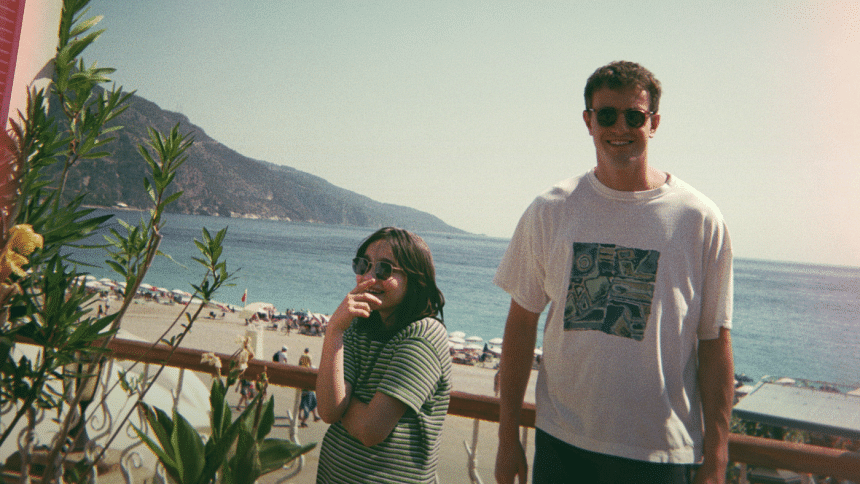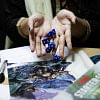Aftersun is a devastating portrayal of the gulf between parents and children

What is the distance between moments and memories? Poets might say it's somewhere in the middle of yesterday and forever. But if they were to tell you how to bridge this inescapable distance, their prose might fall short.
Charlotte Wells's semi-autobiographical debut feature Aftersun is a love letter to childhood memories. The film feels like flipping through a scrapbook of memories. 11-year-old Sophie goes on a trip to Turkey with her father, Calum on his 31st birthday. Nothing dramatic happens.
Sophie, on the cusp of adolescence, is trying to break free from her childhood. She has an easy, friendlike relationship with her father. She tells Calum one night how she naively thought he and her mother would get married. Throughout their trip, she tries to gauge Calum, to truly know him.
Frankie Corio as Sophie is a tour de force, utterly fooling the audience that this is her major acting role. If Corio's Sophie is the heart of the film, Paul Mescal's Calum remains the soul. Mescal's ability to exhibit raw emotional vulnerability and appear emotionally naked on the screen remains unmatched.
Calum is a tragedy depicted as a man. His whole existence is adrift. The symptoms of Calum's depression creep in slowly – sometimes through his sombre body language, sometimes through his decaying self-esteem. Every time he sighs, it infiltrates the souls of the viewers. His breakdown on his birthday after everyone sings for him hit me like a ton of bricks. The story of his eleventh birthday indicates an abusive childhood. Despite everything, he is trying his hardest to be a good father to Sophie, to give her happy memories to look back on.
Charlotte Wells paints the emotional canvas of the film with her masterful filmmaking brushes. Visual narration rows the film rather than heavy dialogues. The inconspicuous moments create the overriding fabric of the film. From the beginning, you can feel a tragedy looming. It's like watching a story unfold which has already climaxed.
Twenty years later when adult Sophie, who is a parent now, is looking at the footage of their trip, she views her father from a new vantage point – trying to piece together the parts of her father that she wasn't aware of before.
When we are young, our naive eyes view everything through a rosy lens. But as maturity dawns on us, we realise there are a multitude of things we do not know about our parents.
The needle drop moment has to be Calum dancing to "Under Pressure". It remains one of the best scenes of the movie. The strobe lights take a metaphorical meaning – it signifies the fading essence of memory. Sophie's memory of her father is fragmented. And the longer time goes on, the fragile fabric of memory keeps decaying. As we cannot see Calum properly in the store lights, Sophie cannot seem to remember everything about her father. At one point, Calum falls and adult Sophie cannot reach him anymore. It mirrors Sophie struggling to hold on to whatever is left of her memories of her father.
Wells creates new semantics for love and memory through her piercingly poignant storytelling. The camcorder here is an insignia of memory. She weaves the past and present together in the most heartbreaking way. The emotional string of Aftersun kept tugging on my heartstrings until I noticed my heart had bled.
The past is not conclusive. For some, the interlude between moments and memories can mean joyous nostalgia, for some, it brings a sense of dread. Nevertheless, there will always remain a gulf between the two. Aftersun makes that very declaration – we can at best make sense of the past, not reinvent it.
Nawshin Flora is currently daydreaming about catching up to her never ending TBR list. Remind her to get enough sleep at [email protected].

 For all latest news, follow The Daily Star's Google News channel.
For all latest news, follow The Daily Star's Google News channel. 










Comments